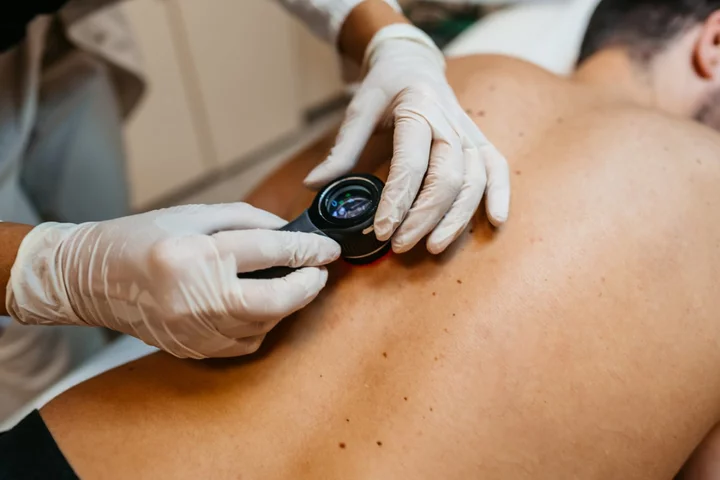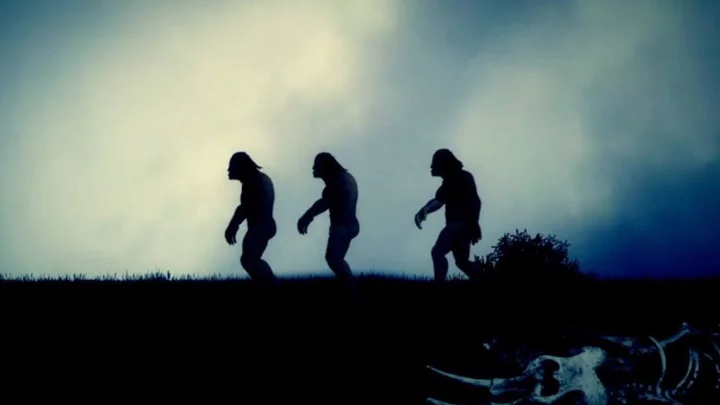
What is Merkel cell skin cancer? The signs and symptoms of the rare condition
Jimmy Buffett died aged 76 on Friday (1 September), in hospice care, after a years-long private struggle with skin cancer. In a statement shared on his website, it was announced that the singer, who was best known for his hit song “Margaritaville”, had been fighting Merkel cell skin cancer for four years. Cancer Research UK has recently warned that skin cancer cases are set to rise by half by 2040, with rocketing diagnoses driven by the “cheap package holiday” boom of the 1960s. Skin cancer is the most common form of cancer in Britain and kills around 2,100 people each year. It is also one of the most common cancers in the world. What is Merkel cell skin cancer? Merkel cell carcinoma (MCC) is a rare type of skin cancer. According to Cancer Research UK, it starts in the Merkel cells, which are usually in the top layer of the skin. These cells are near the nerve endings and they help us respond to touch. The charity states that MCC is a “very rare” form of skin cancer, with 1,500 people diagnosed with the condition in England between 1999 and 2008. What are the causes of Merkel cell carcinoma? With most types of skin cancer, long-term exposure to sunlight can increase a person’s risk of getting MCC. Other factors that could increase a person’s risk include being exposed to ultraviolet light, having a condition that can weaken your immune system or having a virus called Merkel cell polyomavirus (MCPyV). What are the symptoms? MCC usually appears as lumps on the skin. According to Cancer Research UK, the lumps are often a blue/red colour and less than 2cm across but sometimes they can be larger. The skin over them is usually firm and they are not painful. These lumps are often found on the areas of the body that get the most direct sun, such as the head, neck, arms or legs. Unlike most common types of skin cancer, MCC can develop rapidly over weeks or months and can spread to other parts of the body such as the lungs, lymph nodes, liver or bones. The NHS advises that if you are in doubt, contact your GP. How to prevent developing skin cancer Skin cancer is not always preventable, but you can reduce your chance of developing it by avoiding overexposure to UV light. You can protect yourself from sunburn by using high-factor sunscreen, covering up your skin while in the sun, and limiting the amount of time you spend in the sun during the hottest part of the day. Sunbeds and sunlamps should also be avoided. Read More Pregnant Kourtney Kardashian and Travis Barker seen leaving hospital after ‘urgent family matter’ Woman adopts husband’s ex-wife’s baby after growing up in foster care herself ‘People looked at me like I was oppressed in some way’: Young Christians on life in secular Britain How to check if you have skin cancer: Symptoms and signs to look out How many times a week you need to workout to get fit Post Malone shows off 55-pound weight loss in new photos after giving up soda
2023-09-03 23:24

Hubert Aiwanger: Bavarian deputy leader keeps job after antisemitism claims
Firing Hubert Aiwanger would be a disproportionate move, says Bavaria's leader.
2023-09-03 23:23

Madrid residents told to stay indoors as Spanish capital braces for torrential rain
Residents in Madrid were instructed by city authorities to stay indoors Sunday with Storm Dana set to lash the Spanish capital.
2023-09-03 22:57

Elaine's Unfortunate Dancing on 'Seinfeld' Was Inspired By a Television Legend
Could anyone dance that horribly in real life? Yes.
2023-09-03 22:26

As Clarence Thomas faces record unpopularity, Americans want an ethics code for the Supreme Court
Supreme Court Justice Clarence Thomas ended a monthslong saga last week by officially disclosing trips paid for by GOP megadonor Harlan Crow.
2023-09-03 22:24

US Commerce Secretary says there are 'legitimate concerns' with Chinese investment in the US
US Commerce Secretary Gina Raimondo said there are "legitimate concerns" with Chinese investments in the US as it relates to national security.
2023-09-03 22:22

For small biz reliant on summer tourism, extreme weather is the new pandemic -- for better or worse
For small businesses that rely on summer tourism to keep afloat, extreme weather is replacing the pandemic as the determining factor in how well a summer will go
2023-09-03 21:59

Kazu Hiro: Oscar-winning makeup artist apologizes for creating Bradley Cooper's controversial 'Jewface' nose for 'Maestro'
Kazu Hiro, known for his Oscar-winning work, apologized for the controversial prosthetic nose used on Bradley Cooper in the film 'Maestro'
2023-09-03 21:49

Meloni Skips Investor Forum To Attend Ferrari F1 Race
Investors hoping to hear from Giorgia Meloni at the annual Ambrosetti Forum — particularly on her interventionist moves
2023-09-03 21:46

Pope tells Chinese Catholics to be 'good citizens' as he hosts mass in neighboring Mongolia
Pope Francis urged Chinese Catholics to be "good citizens" and "good Christians," a rare instance of the Holy Father publicly addressing the issue of religion in China.
2023-09-03 20:58

Jeremy Hunt Says UK Is on Track to Halve Inflation This Year
The UK government is still on track to achieve its pledge to halve record inflation this year and
2023-09-03 20:49

The terrifying time our early ancestors almost became extinct
New research has shown that our early ancestors almost went extinct some 900,000 years ago. Using a new method called FitCoal (fast infinitesimal time coalescent process), researchers analysed the likelihood of present-day genome sequences to project current human genomic variation backwards in time. They applied the technique to the genomes of 3,154 people from 10 African and 40 non-African populations, and found a massive crash in genetic diversity during the transition between the early and middle Pleistocene. “Results showed that human ancestors went through a severe population bottleneck with about 1,280 breeding individuals between around 930,000 and 813,000 years ago,” the study authors wrote in the journal Science. “The bottleneck lasted for about 117,000 years and brought human ancestors close to extinction,” they say. Wiping out roughly 98.7 percent of the ancestral human population, “the bottleneck could also have increased the inbreeding level of our ancestors, thus contributing to the 65.85 percent loss in present-day human genetic diversity,” explained the researchers. This probably happened because of changes in the global climate as short-term glaciations became longer-lasting, triggering a drop in ocean temperatures, prolonged drought, and the loss of large numbers of species that humans might have relied on for food. Then, around 813,000 years ago, populations finally recovered, with a 20-fold increase in numbers because of fire combined with the return of warmer temperatures, researchers reckon. What a near miss, eh? Sign up to our free Indy100 weekly newsletter Have your say in our news democracy. Click the upvote icon at the top of the page to help raise this article through the indy100 rankings.
2023-09-03 19:55
